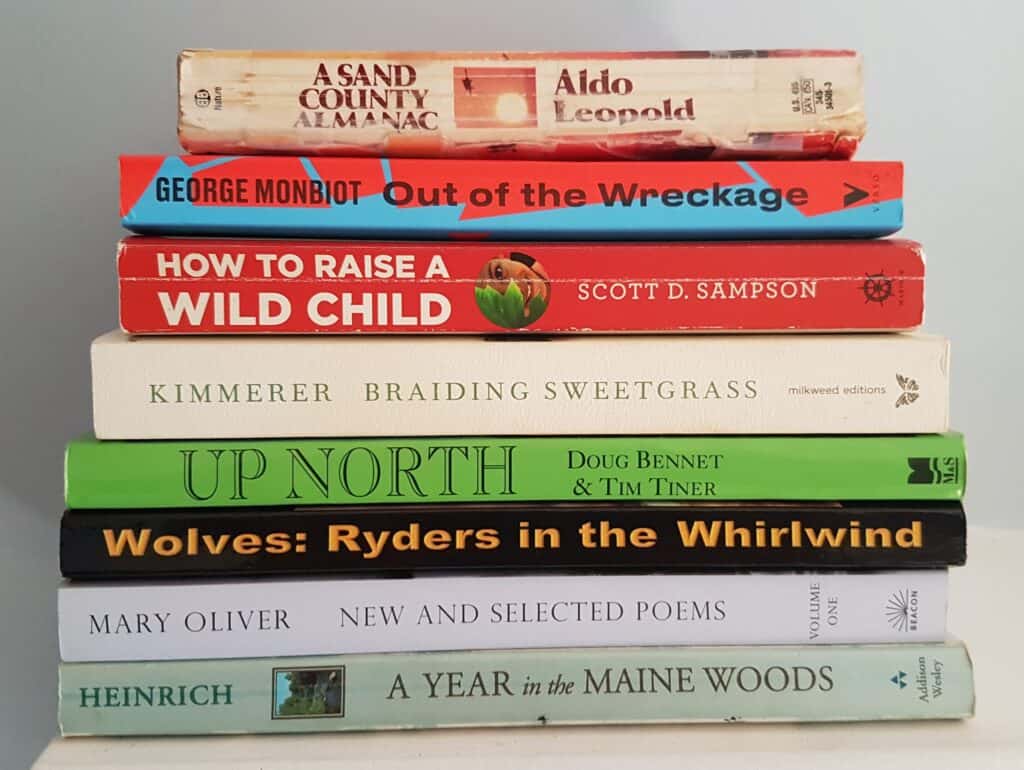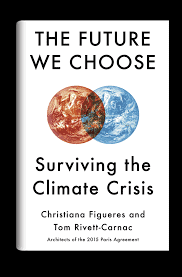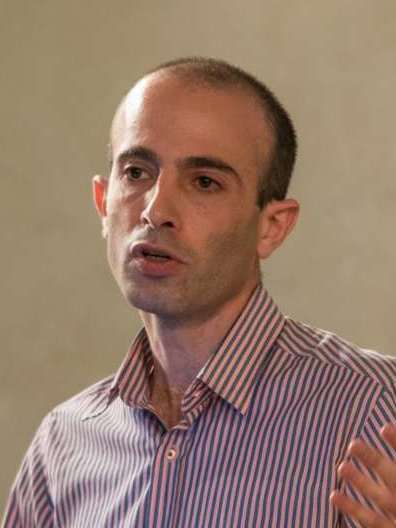“Whoever you are, no matter how lonely, the world offers itself to your imagination, calls to you like the wild geese, harsh and exciting.”
— Mary Oliver, “Wild Geese”
From all accounts, nature seems to be doing just fine as human activity has been dialed down in recent months. In fact, the pandemic seems to be inspiring many of us to pay more attention to the natural world than we normally would. The interest I’ve seen in birds this spring on social media surpasses anything I can recall. It has also garnered considerable press coverage, including a feature article in the Globe and Mail. Brenda Ibey, owner of the Avant-Garden Shop in Peterborough, says she’s amazed not only by soaring bird seed sales but by the number of people who are getting into feeding birds for the first time.
Given the gift of time we now enjoy, I thought I’d propose some of my favorite nature and environment books, both recent and classic. The following titles not only describe the wonders of this troubled planet but will help us to consider what kind of future we want. If there is one idea that runs through all of these books, it’s the importance of a new story for humankind – a guiding story in which everyone’s needs are met without ransacking the natural world, our mental and physical health, and the prosperity of future generations.

BRAIDING SWEETGRASS: Indigenous Wisdom, Scientific Knowledge, and the Teachings of Plants – Robin Wall Kimmerer (2013)
When I ask people to name their favorite nature books, Braiding Sweetgrass is one of the first they mention. The author is both a biology professor and a member of the Potawatomi First Nation. Writing from both perspectives, Kimmerer explains in beautiful prose the interdependence of people and the natural world – especially the plant world – and that we need a much more reciprocal relationship with Nature. She shows how other living beings—from asters and goldenrod all the way to sweetgrass— have so much to teach us and offer so much sustenance. Quote: “Live as if your children’s future matters, take care of the land as if our lives and the lives of all our relatives depend on it. Because they do.”
THE FUTURE WE CHOOSE: Surviving the Climate Crisis – Christiana Figueres and Tom Rivett-Carnac (2020)
The authors, who led negotiations for the United Nations during the historic Paris Agreement, are two of my favourite thinkers when it comes to climate change. What I like most is their sense of optimism. So many of the solutions to climate change are available now if we choose to adopt them, hence the book’s title. They lay out 10 actions we can all take, starting with the importance of seeing oneself as a citizen as opposed to a consumer. I also recommend the authors’ podcast called “Outrage and Optimism”, much of which now focuses on how the current pandemic can inform action on climate change.Quote: “In times of profound suffering and great need, we rise to the occasion…That impulse to gather in a circle of care for one another must be extended to our efforts to address the climate crisis.”

OUT OF THE WRECKAGE: A New Politics for an Age of Crisis – George Monbiot 2018)
Monbiot, a political activist and well-known columnist at The Guardian newspaper, explains how a toxic ideology rules the world – one of extreme competition and individualism. He argues that this is a misrepresentation of human nature and one that inflicts huge damage. What we need is a new story that reflects our true cooperative and altruistic nature – a side of humankind we’re seeing right now in the inspiring mutual aid during this pandemic.
Monbiot believes that such a story can re-engage people in politics – a politics of belonging – and in creating a better world. He shows how both democracy and economic life can be radically reorganized and that neo-liberal forces that wreaked havoc on our lives can be thwarted. Quote: “The old world, which once looked stable, even immutable, is collapsing. A new era has begun, loaded with hazard if we fail to respond, charged with promise if we seize the moment.”
THE OVERSTORY – by Richard Powers (2019)
This is an impassioned fictional work of environmental activism and resistance that evokes on every page the wonder and newest science about trees. Powers explains how interconnected and resourceful trees are in ways that are almost invisible to us. It is also the story of nine people whose life experiences allow them to see this amazing “overstory” and bring them together to try to stop the destruction of forests and the natural world in general. Quote: ““The best arguments in the world won’t change a person’s mind. The only thing that can do that is a good story.”
A SAND COUNTY ALMANAC – by Aldo Leopold (1949)
More than any other book, “A Sand County Almanac” launched the modern conservation movement. Leopold, an American ecologist, writes in lyrical prose of his love for land, nature, and seasonal change in his Wisconsin home. The book begins with an actual almanac covering each month of the year in nature. It concludes with essays on conservation, including Leopold’s most influential essay, “The Land Ethic”. Quote: “A thing is right when it tends to preserve the integrity, stability and beauty of the biotic community. It is wrong when it tends otherwise.”
A YEAR IN THE MAINE WOODS – by Bernd Heinrich (1994)
This quirky book is one of my very favourites. Heinrich, a biology professor at the University of Vermont, recounts the fulfillment of a dream he’d always had: to spend an entire year at his wilderness cabin in Maine. You’ll want to do the same. The book is about slowing down, paying close attention, and really getting to know the plants and animals of one small place through the seasons – the sounds, smells, and species of each month. It actually inspired me to write my first book, “Nature’s Year in the Kawarthas”. Quote: “Many of us are like sleepwalkers here, because we notice so little.”
NEW AND SELECTED POEMS: Volume One – by Mary Oliver (1992)
I love to turn to the poetry of Mary Oliver as a source of inspiration and contemplation about nature. Her poems are both companions and daily meditations. Oliver’s poetry is firmly anchored in place – a place that often evokes the Kawarthas – and is eminently accessible to the general poetry reader. Like Heinrich, her poems reflect someone who is really paying attention. This volume contains her classics like “Wild Geese” quoted above.
WOLVES: Ryders in the Whirlwind – Gordon Harrison (2019)
Harrison is one of our best local writers. In his new book, he tells the story of a wolf called Big Red – an eastern wolf he actually came to know on his Haliburton property – who must make a perilous journey home across Algonquin Park. In the process, we learn not only about wolves and their fraught relationship with humans but also about the other animals and plants with which they share the same ecosystem. Harrison combines his personal anecdotes with lessons from thinkers such as Charles Darwin. The book is available at the Avant-Garden Shop. QUOTE: “All life-forms are composites; we call the result evolution. Humans now wish to apply this non-sense of racial purity, which has poisoned entire civilizations, to the genus Canis, both wolf and dog.”
HOW TO RAISE A WILD CHILD: The Art and Science of Falling in Love with Nature – by Scott Sampson (2015)
This book emphasizes the importance of nature mentors and how to become one yourself. You need not be a nature expert – just a source of enthusiasm, support, and learning to become a good storyteller. Children will value what you value, so start noticing and appreciating nature yourself. Sampson also explains the importance of unstructured outdoor play, risk-taking, and asking questions. He argues that kids need to know the story of how the Universe began and how evolution explains everything we see around us in living nature – including ourselves. Quote: “At their best, stories are priceless word-jewels with the power to create, sustain, and transform worlds…Think about you, the nature mentor, as storyteller.”
THE COMPLETE UP NORTH: A Guide to Ontario’s Wilderness from Black Flies to the Northern Lights – by Doug Bennet and Tim Tiner (2010)
This book is an entertaining field guide to the plants and animals of Central Ontario. A mix of science and trivia about plants, mammals, birds, fish, insects, reptiles, the sky – pretty much everything that would catch your attention when out in nature or even in your backyard. For example, what are those hundreds of little holes in the trunks of birch and hemlock trees? What constellation is that? What’s the whole story with these blackflies? This is a book that every cottager, camper, and hiker should have.
Climate Crisis News
Yuval Noah Harari, the international bestselling author of “Sapiens”, was a recent guest on the “Outrage and Optimism” podcast mentioned above. When asked about the pandemic, he said he’s very encouraged by the apparent change in attitude by so many politicians and much of the public when it comes to science. “We’re seeing that people all over the world are turning to the scientists as the best authority on what to do… I hope that this spirit will carry on even after this immediate crisis is over and that when scientists warn us about climate change, we will take it as seriously as we now take what they say about the pandemic. And, it’s a much bigger danger than COVID-19. It’s ecological collapse. Hopefully, this is a necessary wake-up call for humanity.”
